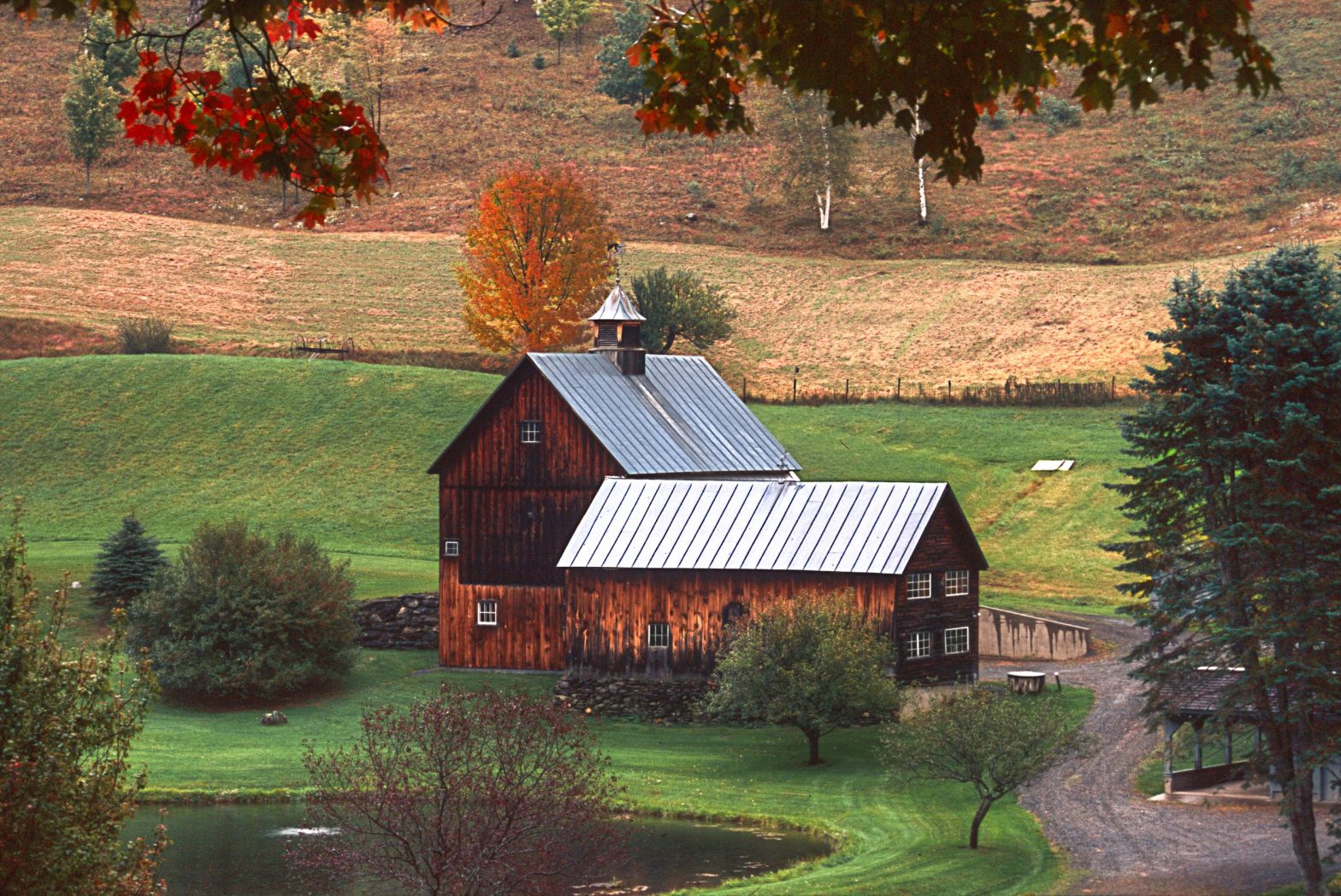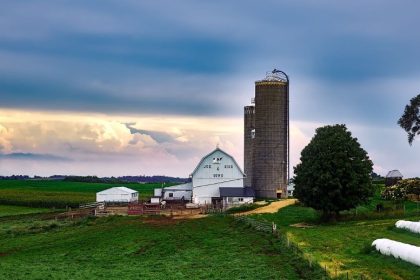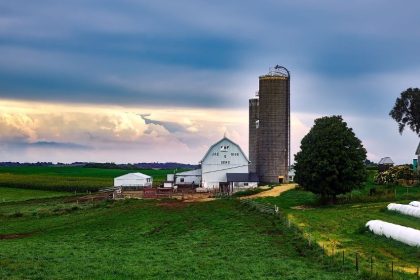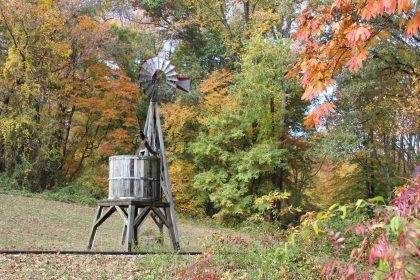Former Senators See Resiliency as Cornerstone of Next Farm Bill

WASHINGTON — Two high profile ex-U.S. senators are urging those crafting the next farm bill to implement “strategic changes” at the U.S. Department of Agriculture that will help more farmers and forest landowners embrace conservation and resiliency practices.
Former Sens. Saxby Chambliss, R-Ga., and Heidi Heitkamp, D-N.D., now the co-chairs of the Bipartisan Policy Center’s Farm and Forest Carbon Solutions Task Force, made their plea in a letter sent to Capitol Hill on Friday.
“Congress gets an opportunity every five years to improve the lives of our hard-working farmers, ranchers and foresters, and we believe there are several policy changes to existing programs that should draw strong bipartisan support,” Chambliss said, explaining the motivation behind the letter.
He and Heitkamp explain their recommendations aren’t a critique — in fact they applaud the “remarkable efficacy of existing farm bill programs” — but that they feel there are gaps that can be filled “to ensure practical and lasting impacts in support of the long-term productivity” of these properties and “the prosperity of rural communities.”
Writing for the task force, Chambliss and Heitkamp offer their recommendations in the context of four titles of the actual bill:
Conservation (Title II)
American farmers and forest landowners underpin our national economy, providing food, fuel and fiber. Producers and forest landowners are long-time leaders of environmental stewardship and rural economic development. Existing conservation programs are (i) popular, (ii) oversubscribed, and (iii) support farmers of diverse production types. We therefore strongly support investments in American agriculture, conservation and resilience. Furthermore, bolstering these sectors is essential to ensuring American agriculture remains globally competitive. Therefore, we recommend:
- Maintaining conservation funding and core Title II program structure as locally driven, voluntary and incentive based.
- Modernizing and streamlining the following key processes at the Natural Resources Conservation Service to improve program delivery and efficiency; certification of third-party technical service providers; conservation practice approvals.
- Directing NRCS to develop and implement cross-boundary rangeland conservation and restoration partnerships through authorization and expansion of the current Joint Chiefs’ Landscape Restoration Partnership to pair NRCS’ Environmental Quality Incentives Program with federal land management agency appropriations.
Research (Title VII)
We recommend leveraging our nation’s incredible education assets — land-grant universities, historically Black colleges and universities, minority-serving institutions, tribal colleges and universities — to train the next generation of American producers and forest land managers. Enhanced research, education and extension programs will improve the sustainability and long-term resilience of U.S. agriculture. Targeted agriculture research and innovation will spur productivity growth and generate economic and environmental benefits. To this end, we recommend:
- Bolstering the National Institute of Food and Agriculture’s support to land-grant universities in the following priority investment areas using an integrative research-education-extension approach: tree seed and seedlings supply chain, including construction and improvement of agricultural research and nurseries infrastructure; agricultural supply chain sustainability, including quantification, monitoring, reporting and verification of greenhouse gas benefits.
- Creating a NIFA pilot partnership program to facilitate expanded Cooperative Extension System engagement with the private sector, including agricultural retailers, cooperatives, seed and feed companies, forest landowners, forestry consultants, procurement foresters and nonprofits.
- Designating at least one of the 1890 Centers of Excellence as an institution focused on building sustainable and climate-smart agricultural supply chains. Modifying programs supporting 1994 institutions such as the New Beginnings for Tribal Students Program to incorporate climate, sustainable agriculture and traditional ecological knowledge.
Forestry (Title VII)
Task force members support investments to enhance the resilience of our natural and working lands in the face of increasing threats from wildfires, droughts, floods and other extreme weather, as well as threats from pests and invasive species.
The investments made to date enable management approaches that protect public health and safety, safeguard vulnerable landscapes, foster job creation and bolster economic growth. We endorse investments and improvements in the forestry title of the farm bill to address these challenges in our public and private forests, while also stimulating rural economic growth. To this end, we recommend:
- Authorizing USDA’s Forest Service to provide loan and loan guarantee financing for nursery infrastructure, seed collection and storage, as well as technical assistance to state and tribal nurseries.
- Providing greater funding flexibility to better enable cross-jurisdictional hazardous fuels projects by: authorizing a mix of appropriated funding sources to enter into cost share agreements; increasing the hazardous fuels program authorization level.
- Modifying the USFS Wood Innovations Grants Program to authorize USDA to provide low-interest loans and loan guarantees, streamline match requirements and fund higher education programs focused on innovative wood products.
Miscellaneous (Title XII)
Innovation in agriculture and forestry is critical to meet the evolving economic and environmental challenges faced by these sectors and is also needed to expand the range of tools available to monitor, quantify and verify environmental and economic outcomes. Increasing access to precision agriculture technologies enables more efficient management of land, water, fuel, fertilizer and pesticide resources, driving down costs and lowering emissions.
These tools provide the accurate measurements needed to advance predictive models. Data generated by these resources further catalyze greater integrity and transparency in voluntary carbon markets and reduce the administrative and technical burdens faced by potential participants in federal conservation programs, supply chain sustainability programs and voluntary carbon markets. We advise:
- Modernizing USDA’s data collection, security, storage and access. Improving data on conservation practices and farm productivity — including through data review and analysis, technical assistance and support for precision agriculture data and technology solutions — while also maintaining producer confidentiality.
Other BPC Energy Program Priorities
Although outside the scope of our Farm and Forest Carbon Solutions Task Force, the BPC Energy Program recommends the following policy priorities to advance American innovation in the bioeconomy:
- Modifying the Biobased Market (Biopreferred) Program (Energy Title IX) to authorize improved product labeling with environmental considerations in addition to biobased; providing incentives for high-quality product procurement; and improving data and reporting systems to better support the growing bioeconomy.
- Strengthening USDA research, innovation and commercialization programs (Research Title VII) by investing in: advanced research into agricultural technologies, research tools and products to address long-term and high-risk challenges for food and agriculture; developing regional biochar research networks to investigate the beneficial end-uses of biochar, including research on carbon sequestration, water and nutrient retention as soil additive, and reduction of methane emissions as feed additive.
Heitkamp and Chambliss close by saying they’re looking forward to the next farm bill, calling it “an unmatched and widely supported opportunity for a suite of policies to improve access to federal government programs and private market opportunities for producers and landowners of all types and sizes.”
“We strongly believe this can be accomplished without taking away from core farm bill programs and instead drawing on policymakers’ decades of experience supporting and implementing voluntary and incentive-driven conservation solutions for America’s farmers, ranchers and forest landowners,” they say.
Added Heitkamp, “America’s farmers and foresters have led the way in implementing conservation and sustainable practices, and it’s important that federal policy reflects, encourages and furthers these efforts.”
Dan can be reached at [email protected] and @DanMcCue























